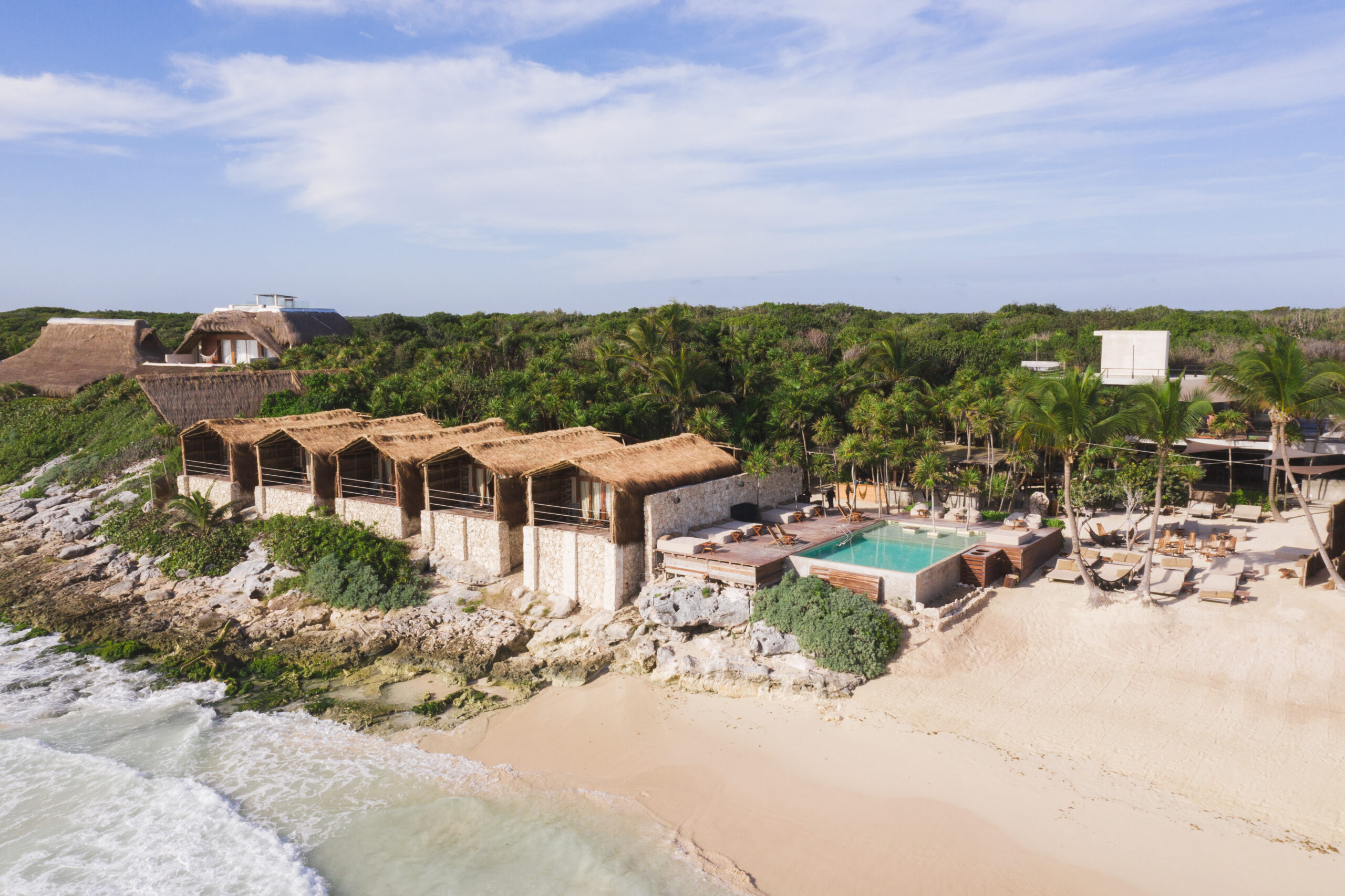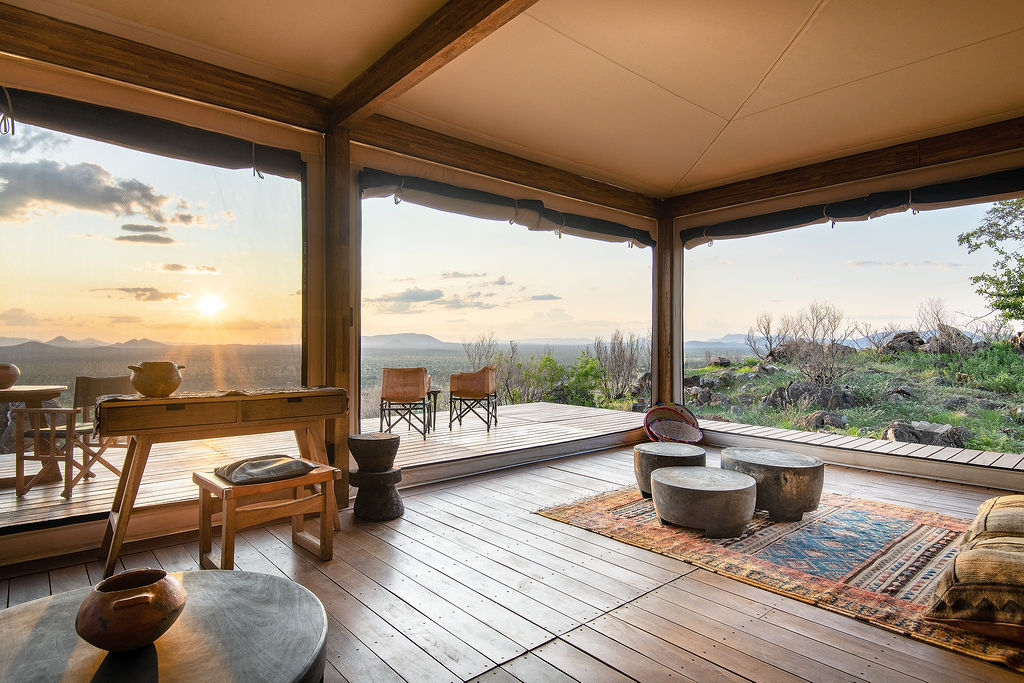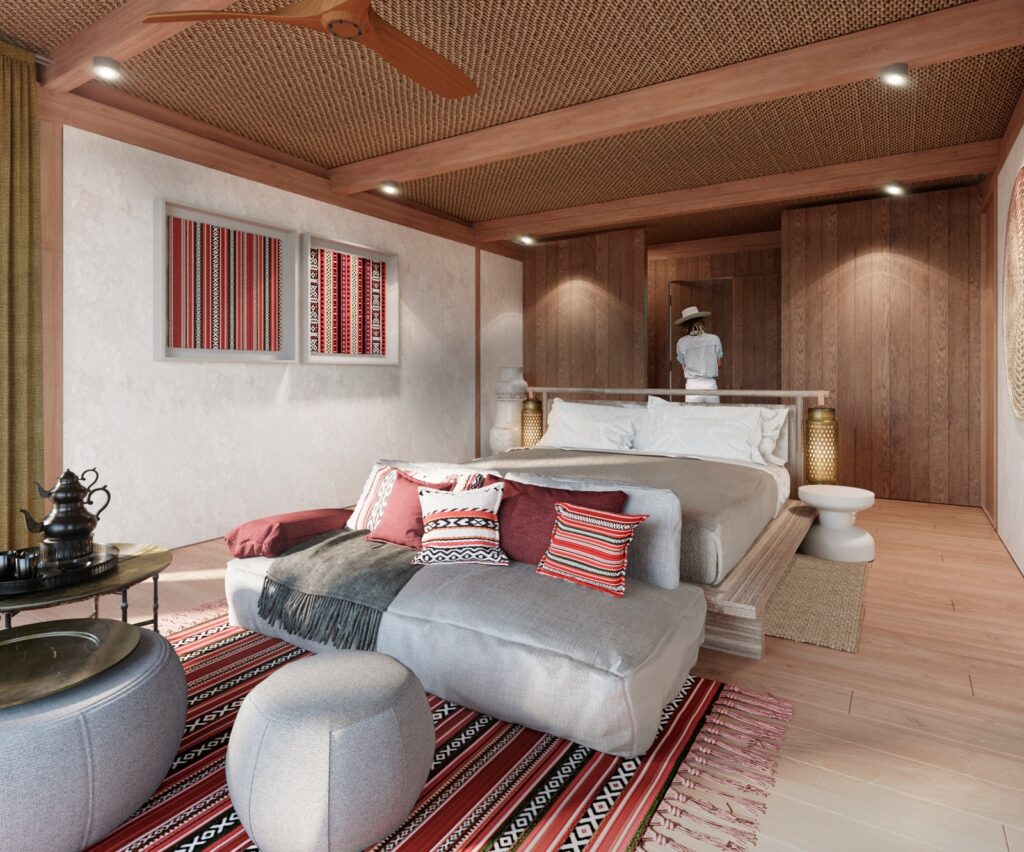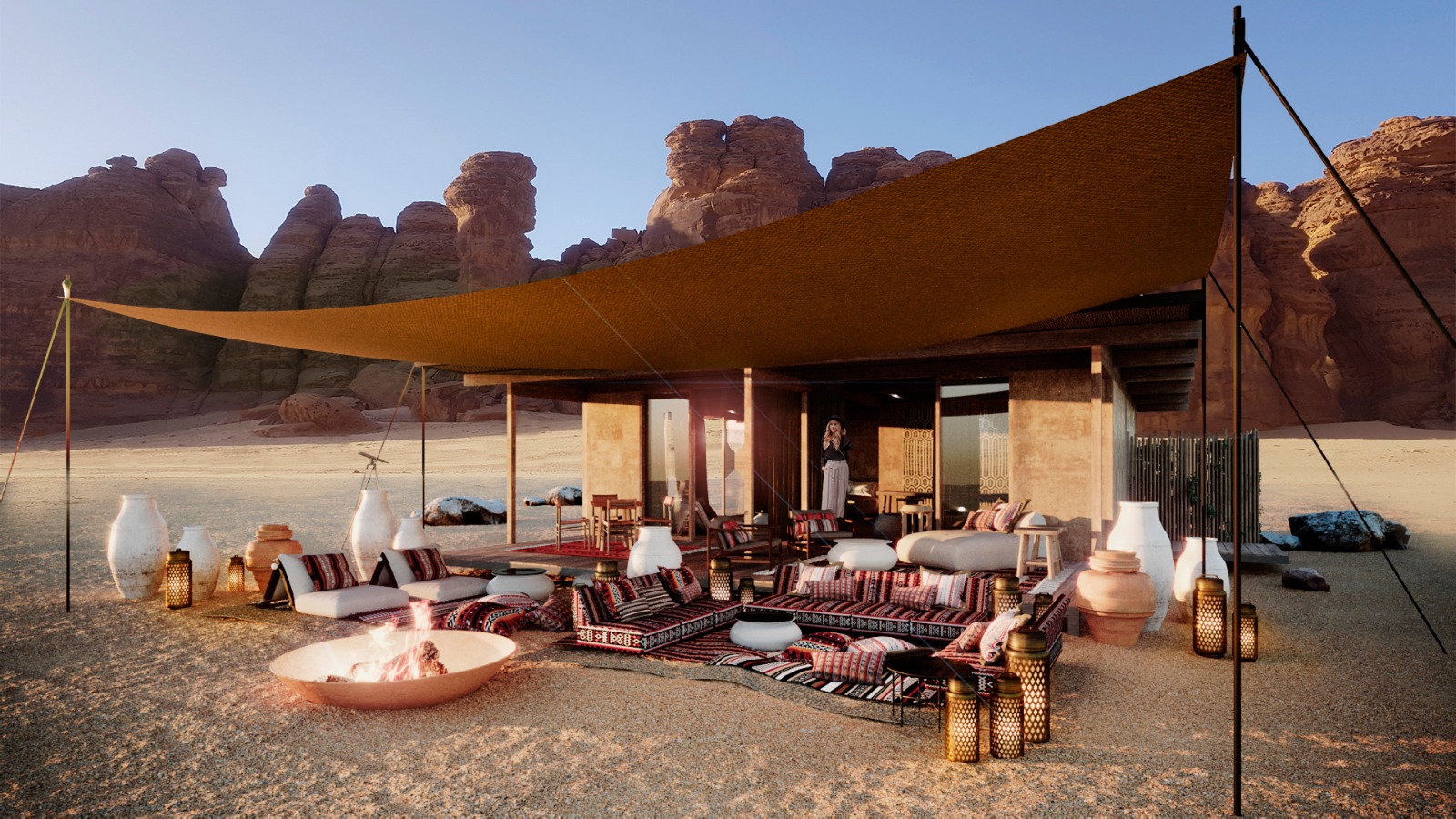Habitas, a hotel brand that uses 3D printing to lower its carbon footprint, is expanding into Saudi Arabia, Mexico and Costa Rica. Sam Ballard reports
Habitas, a new hotel brand that has backers including Travis Kalanick, the co-founder of Uber; Tim Steiner, chief executive of online supermarket Ocado; and Justin Mateen, the co-founder of dating app Tinder, has been granted approval to build a hotel in AlUla, Saudi Arabia’s luxury resort.
The company, which started as a camp at Burning Man festival, currently has two properties – one in Tulum, in Mexico, and another in Namibia, and has been compared to a Club Med equivalent for millennials.
What’s more, it employs innovative 3D printing techniques in the construction of its properties, creating the basic room structures at its factory in Mexico.
These are then sent flat-pack to a destination where they can be built with limited damage to the local environment. “We assemble them like Lego,” Oliver Ripley, CEO of Habitas, tells the Financial Times.
According to the FT, this approach to architecture means that Habitas hotels can be built within six to nine months, and earn a return on investment within two years, much quicker than most traditional hotels.

 On its website, Habitas says that those sustainable building practices have allowed it to “activate some of the most unique locations in the world while protecting mother nature”.
On its website, Habitas says that those sustainable building practices have allowed it to “activate some of the most unique locations in the world while protecting mother nature”.
The company also has plans to expand into Costa Rica as well as Todos Santos and San Miguel De Allende, its second and third properties in Mexico, with rooms costing between US$200 and US$400 a night. All Habitas hotels offer an “immersive experience” that is centred on six key pillars: wellness, adventure, music, food, culture and learning. The idea being that customers will experience Habitas’s own rituals blended with local traditions.
All Habitas hotels offer an “immersive experience” that is centred on six key pillars: wellness, adventure, music, food, culture and learning. The idea being that customers will experience Habitas’s own rituals blended with local traditions.
 Commenting on the collaboration in Saudi Arabia, Amr AlMadani, CEO of the Royal Commission for AlUla, says: “This agreement reflects our commitment to making AlUla a global destination that offers visitors unique, authentic experiences as we protect, share and celebrate our natural and cultural heritage.
Commenting on the collaboration in Saudi Arabia, Amr AlMadani, CEO of the Royal Commission for AlUla, says: “This agreement reflects our commitment to making AlUla a global destination that offers visitors unique, authentic experiences as we protect, share and celebrate our natural and cultural heritage.“Construction is underway, a fact that signals that we are actively opening up new opportunities for regional and international investors in the hospitality sector while empowering and enabling our community.”
Ripley says: “From our very first trip to AlUla we were really inspired by the people we met and by its natural beauty and heritage. Travel is an incredible gift to create greater compassion and understanding in the world between different people and cultures.
“We are grateful to RCU for the opportunity to create our home here and invite our community to discover the unique history of AlUla, to share unforgettable experiences and adventures, and make new friends that stay with us long after we leave.
Ripley continues: “RCU’s approach to sustainable development aligns very closely to our values and DNA and in our mission to support local communities. The world, now more than ever, needs to create places for people to reconnect with one another and with nature.”
Saudi Arabia has lofty ambitions for AlUla, a region that includes the country’s first UNESCO World Heritage Site. It will be opening to a limited number of tourists for the first time in October and is part of Saudi Arabia’s Vision 2030, a programme to diversify the country’s economy away from its reliance on oil.




